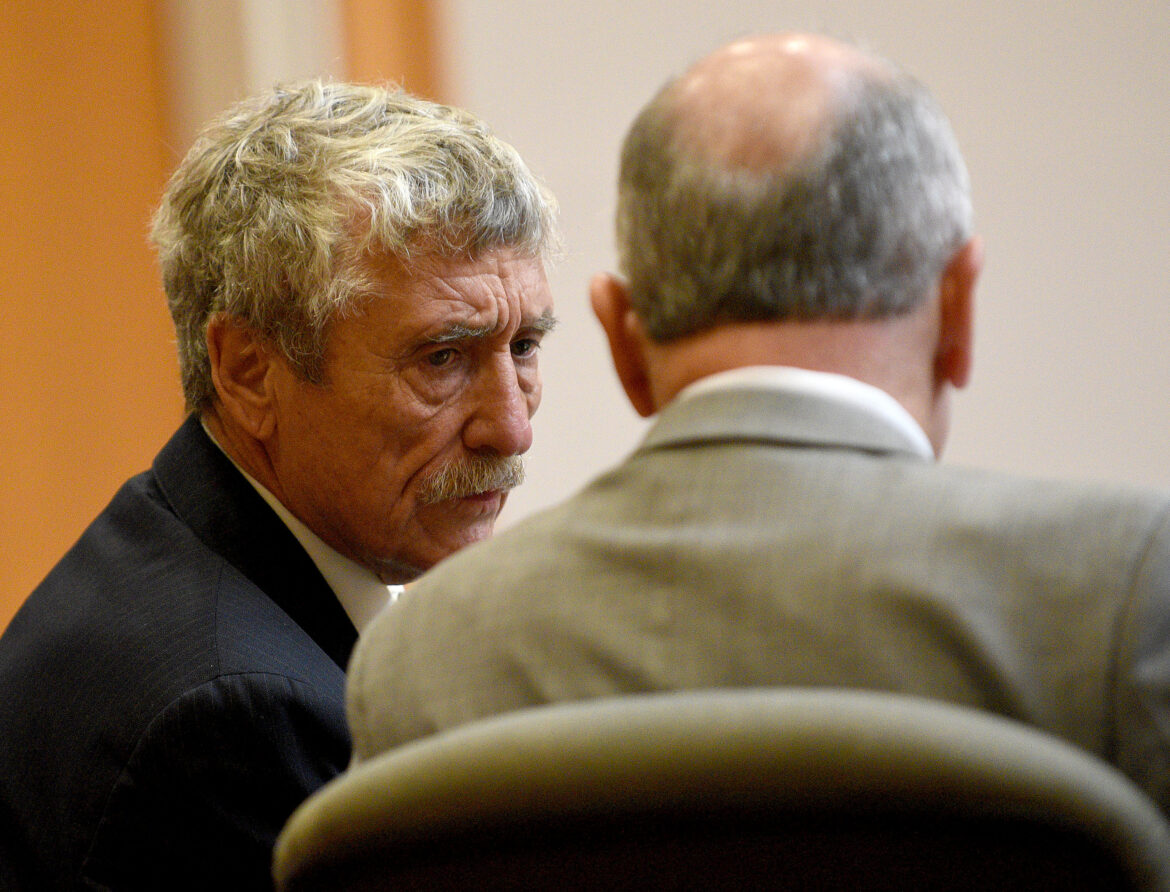By DAMIEN FISHER, InDepthNH.org
MANCHESTER — House leader at the notorious YDC East Cottage, now called the Sununu Youth Services Center, Bradley Asbury exercised total control over staff and the children.
Now 70, Asbury had little control as he sat silent in the Hillsborough Superior Court — North on Tuesday for the start of the criminal trial for his alleged role in the rape of a 14-year-old boy.
Asbury is on trial for being an accomplice to the rape of Michael Gilpatrick, allegedly holding the boy down as two other YDC staffers raped him during a 1998 incident.
Gilpatrick, now 40, is one of the more than 1,000 adult survivors now suing the state over the abuse they suffered as children inside New Hampshire’s juvenile justice system. The state has paid out more than $102 million to 200 survivors, and is staring down paying out hundreds of million more. But, Assistant Attorney General Audriana Mekula told jurors this trial isn’t about the lawsuits that allege state corruption and cover up. It’s about Gilpatrick.
“This trial is about how Mike was raped. It’s not about revenge and it’s not about money,” Mekula said.
Asbury’s lawyer, David Rothstein, told jurors money is very much at the heart of this trial, as the alleged rape never happened.
“Brad Asbury is not guilty of these charges. No rape happened,” Rothstein said.
Asbury is the second YDC abuse suspect to go to trial, and the playbook for both defense teams looks identical. Rothstein said Gilpatrick is angling for a big payday in his civil lawsuit against the state, set for early next year.
Since he first talked to police about the alleged rape, Gilpatrick has withdrawn about $140,000 in advances from a financing company against his anticipated civil lawsuit damages award. Gilpatrick does not have to repay that money if he loses the civil case, but a guilty verdict in the criminal case is a big plus for his cause, Rothstein said.
“He has a lot to gain from your verdict,” Rothstein said.
Asbury was fired from YDC in 1994 for alleged verbal and psychological abuse of the children in his care, as well as inappropriate and unauthorized confinement of a child. But, Asbury challenged the firing at the state Personnel Appeals Board, got his job back with back pay, and sued his supervisor.
Rothstein told jurors Gilpatrick has a documented history of saying things that are not true in his statements to police, and many of the alleged facts do not add up. Gilpatrick has given multiple dates for the alleged rape, statements about his family relationship at odds with the record, and naming a staffer in the rape who was not on duty at the time of the alleged assault, Rothstein said.
“You have your common sense, you know how to evaluate credibility,” Rothstein said.
Tuesday’s opening was in some ways a replay of the Victor Malavet trial, in which the alleged rape victim, Natasha Maunsell, was attacked by the defense for inconsistent statements, her juvenile criminal record, and the fact she also took advances on her civil lawsuit.
The Malavet jury deadlocked and a mistrial was declared in September, and the state has yet to signal if it plans to retry the case. If there is truth to Rothstein’s assertion that a guilty verdict against Asbury is good for Gilpatrick’s case, it leaves open the question if a not guilty verdict is good for the state’s bottom line.
The New Hampshire Attorney General’s Office has been criticized by survivors for the obvious conflict of interest that it is defending against the civil claims while at the same time prosecuting the alleged abusers. This impression is not helped by the revelation in court earlier this year that the state’s special YDC task force has stopped investigating abuse after 11 men were indicted. There are hundreds of named abusers in the civil lawsuits who can still be charged under the statute of limitations.





